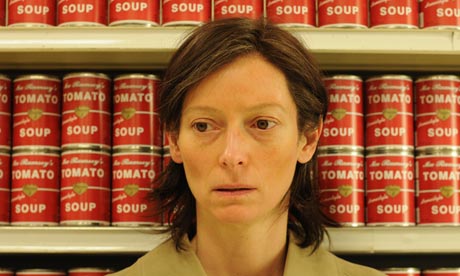As we look back, two thousand and eleven was one of them mighty years in cinema which comes around ever so often. Almost every major film artist came forth with new work in the last year, work which will be slowly trickling out in 2012. Every year is a good year at the movies, we just happened to have an especially grand one.
My favorite movies of 2011 . . . . .
 |
Jessica Chastain, The Tree of Life, Fox Searchlight Pictures, 2011.
|
1. Terrence Malick's
The Tree of Life is a true wonder in every sense; a visual, aural assault on the senses juxtaposing the evolution of humankind with one average man's life. A divisive film, it is unlike anything I've ever seen.
 |
| Jeremy Irvine, Warhorse, Dreamworks Pictures, 2011. |
2. Steven Spielberg's
Warhorse is one of his very best . . . a sweeping epic which is intimate, emotional and deeply moving. . . .at once a brilliant war film and a classic family film .
 |
| Kirsten Dunst, Cameron Spuur, Charlotte Gainsbourg, Melancholia, Magnolia Pictures, 2011 |
3. Lars Von Trier's
Melancholia is a courageous, mind-altering epic of feminine fears and desires as well as cosmic happenstance. The power and mystery of his form are breathtaking.
 |
| Ryan Gosling, Drive, FilmDistrict, 2011. |
4. Nicholas Winding Refn's
Drive slapped me awake from the Summer/Fall doldrums, Refn's virile mise en scene was a perfect fit for Gosling's subtle scowl and a game cast. A stylistic powerhouse, Drive harks back to Hollywood's 70s/80s heart and howls at the moon.
 |
| Martina Gusman, Ricardo Darin, Carancho, Strand Releasing, 2011. |
5. Pablo Trapero's
Carancho was the best foreign-language film of the year, an Argentinian film which burned to live on the screen. Trapero dabbles in the neo-noir and finds dark love instead.
 |
| Uncle Boonmee Who Can Recall His Past Lives, Strand Releasing, 2011. |
6. Apichatpong Weerasethakul's
Uncle Boonmee Who Can Recall His Past Lives wove a spell that is hard to shake off. Capturing the halfway state between hallucination, dream, and death, Apichatpong has styled one of his most haunting films.
 |
| Michael Shannon, Take Shelter, Sony Pictures Classics, 2011. |
7. Jeff Nichols'
Take Shelter solidified the reputation of a young American master. An uneasy, creeping portrait of the gray area between psychological breakdown and apocalypse, Nichols' eye and Michael Shannon's brilliant performance steep us in the mayhem.
 |
| Michelle Williams, Meek's Cutoff, Oscilloscope Pictures, 2011. |
8. Kelly Reichardt's
Meek's Cutoff was a revisionist Western which really does rank with some of the greats. Her austere approach to the genre is sublime, revealing her strongest work yet as a director.
 |
| Hamish Linklater, Miranda July, The Future, Roadside Attractions, 2011. |
9. Miranda July's
The Future is a whimsical, sad and transcendent trek into the inner lives of two young people afraid to live.
 |
| Marion Cotillard, Owen Wilson, Midnight in Paris, Sony Pictures Classics, 2011. |
10. Woody Allen's
Midnight in Paris was his best film among great ones in over a decade. The sheer magic and delight of his Paris-set love story are a joy to behold.
Six More Films I Loved Almost As Much: Abbas Kiarostami's Certified Copy, Jason Reitman's Young Adult, Roman Polanski's Carnage, David Cronenberg's A Dangerous Method, Zack Snyder's Suckerpunch and Xavier Dolan's Heartbeats.
Honorable Mention: Alamar, The Eagle, Kaboom, Around a Small Mountain, Rango, Of Gods and Men, The Adjustment Bureau, The Conspirator, Miral, Hanna, Insidious, The Beaver, Priest, Poetry, Cave of Forgotten Dreams, The Princess of Montpensier, 13 Assassins, City of Life and Death, Beginners, I Saw the Devil, Larry Crowne, A Better Life, Tabloid, Cowboys and Aliens, Terri, The Myth of the American Sleepover, Attack the Block, Contagion, A Screaming Man, Restless, Blackthorn, The Skin I Live In, Martha Marcy May Marlene, J. Edgar, The Descendants, Hugo, Into the Abyss, The Artist, Shame, The Adventures of Tintin, Tinker Tailor Soldier Spy.
What a phenomenal first year we have spent together.




















